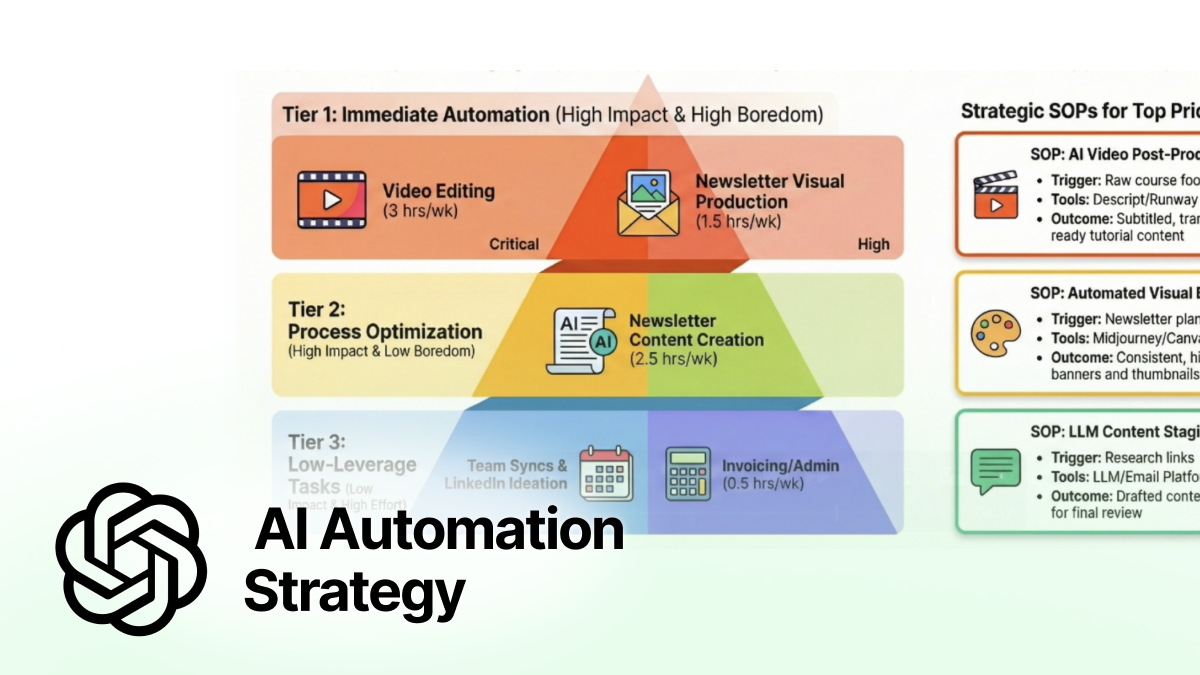
Last week, Executive Coach Yolanda Yu asked a thought-provoking question:
“As I plan my next newsletter, how do I let my client know that it is ME writing with some AI helping to edit, not AI writing?”
Few topics sparked so much discussion in our AI community.
Sodexo’s Head of Future of Work Henrik Jarleskog quickly hit the nail on the head:
“The only way forward is not to care. All content will be more or less digital first. One has just to make the content good enough for people not to mind either way.”
As leaders spend up to 24% of their time on writing – from research reports to internal memos – it got me thinking: how should leaders navigate writing with AI?
What is theirs, what is AI, and can you even let people know?
AI is Writing With Me, But Not For Me
Last week, “I” wrote about how AI agents empower anyone to be a one-person unicorn – or at least, a SuperWorker. I say “I” because AI played a role, just like in almost every piece of content over the past 2.5 years.
So, for full transparency, here’s how the article was created:
- I have a ChatGPT Task setup to help me brainstorm a new article topic every Saturday morning. My brainstorming started here, reflecting on topics from the week prior.
- Once I (we?) landed this topic, I briefed ChatGPT Deep Research to find more insights and articles about scaling yourself through agents.
- After researching for nearly 10 minutes, it brought me 28 references, including some fascinating insights that made it to the final article.

- I wrote my article in a Google Doc where the Grammarly AI plugin provided editing suggestions in real time. I even tried Gemini for Docs’ AI suggestions briefly.
- I sent my final draft to a ChatGPT Project with my previous writing and asked for edits, including my favorite hack: “If you had to erase only one sentence from this article, what would it be and why.” (It found quite a few, which I’ll try not to take personal.)
- I used ChatGPT 4.5 to brainstorm headlines, and later, Gamma AI to turn the article into a few neat slides for LinkedIn, accompanied by copy co-created with Socialsonic.
Did “I” write an article? The “we” may be more appropriate.
But how does this work for leaders? Can they afford to be this transparent?
Where’s Your Value?
In a final training session for a group of educators, its project leader went first in sharing ‘what’s next.’
“For a long time, I was in the AI closet.” He shared openly. “I didn’t want people to know that I used ChatGPT. But now, I’m sharing it for anyone to hear: I collaborate with AI to improve the quality of my work.”
It felt uncomfortable at first, he recalled, being open about using AI. Would people feel like he was cheating? That he was lazy?
For many, these fears still exist: over half of AI usage is done in secret, mainly because people “worry that using it on important work tasks makes them look replaceable.”
It’s in some ways tough to acknowledge that what used to cost you hours or days is now done significantly faster, with higher-quality output.
Because if an AI can do so much of what you used to do, where is your value?
As WSJ-tech writer Alexandra Samuel told me over a year ago, we’re coming upon a tough renegotiation of who we are and what we do.
Case in point: research from Harvard professor Raj Choudhury shows that an AI chatbot trained on a CEO’s writing answered employee questions so convincingly that many staff “thought the answers came from the boss himself.”
In other words, the AI effectively replicated the CEO’s tone and quirks.

Similarly, sometimes, especially for documents where many leaders contribute like an annual strategy, the process of creating it is where the value resides. It’s not so much about the strategy, which ChatGPT could have created based on your data and objectives, but about going through the data, adjusting your mindset and building consensus.
And then, even if AI helps out, how do we properly attribute this?







